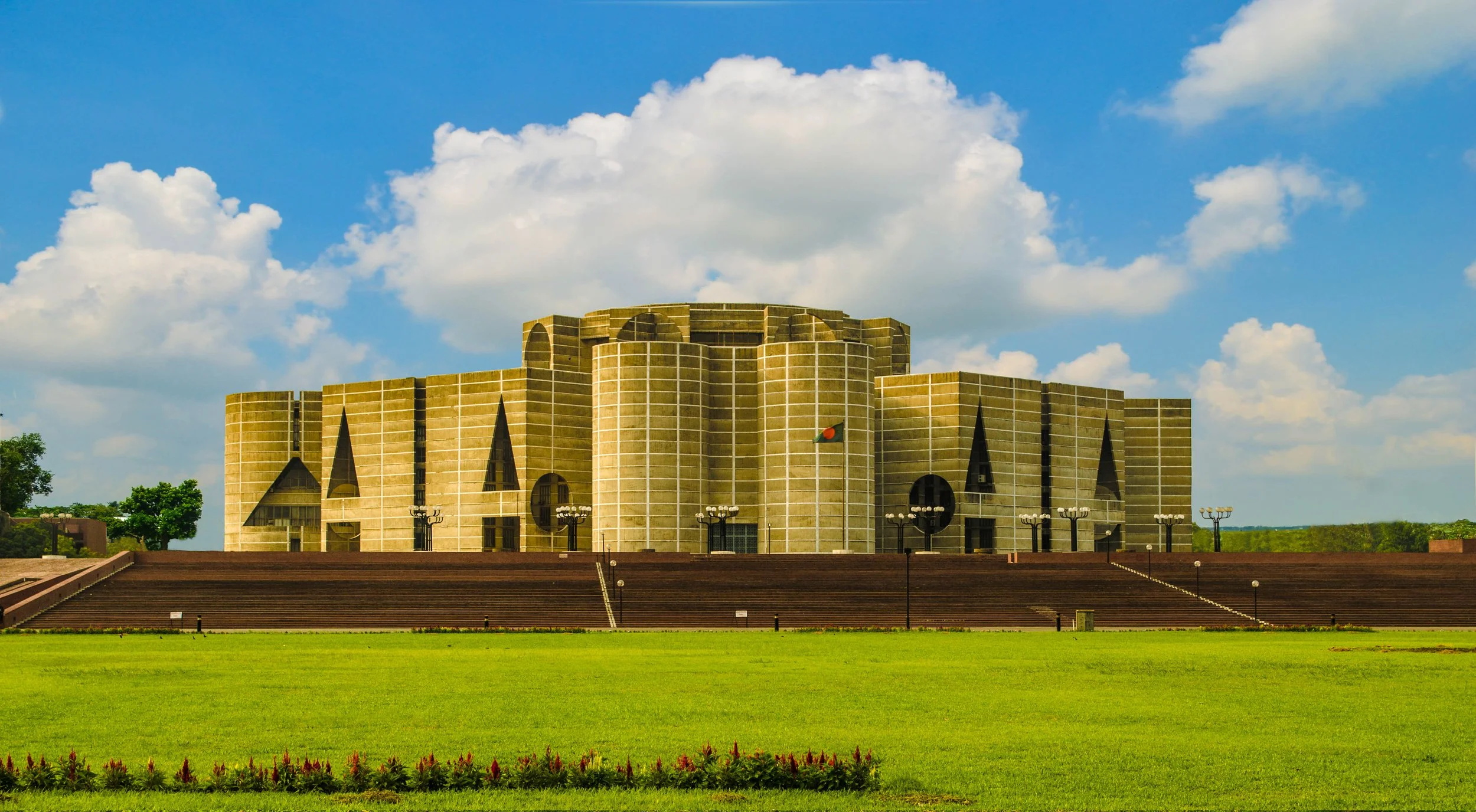Louis Kahn's National Assembly Building in Dhaka
Completed in 1982 in Dhaka, Louis Kahn’s National Assembly Building is both a masterpiece of modern architecture and a profound cultural symbol for Bangladesh.
Commissioned for a newly independent nation, Kahn — working until his death in 1974 — conceived a monumental yet tranquil composition of geometric forms, light-filled interiors, and reflective water bodies. Massive concrete walls are pierced by bold circles and triangles, filtering daylight into spaces of almost spiritual calm.
Designed for a country emerging from struggle, the architecture speaks in universal forms — circle, triangle, rectangle — timeless symbols of unity, balance, and openness. Within its vast halls, light becomes a civic metaphor: revealing structure, guiding movement, and embodying the ideals of transparency and dignity.
Set apart by water, the Assembly complex rises like an island of reflection — a sacred civic landscape where architecture becomes a vessel for democracy.
In its union of cultural identity, geometric purity, and collective vision, it stands as an enduring example of how architecture can give form to the soul of a people.

